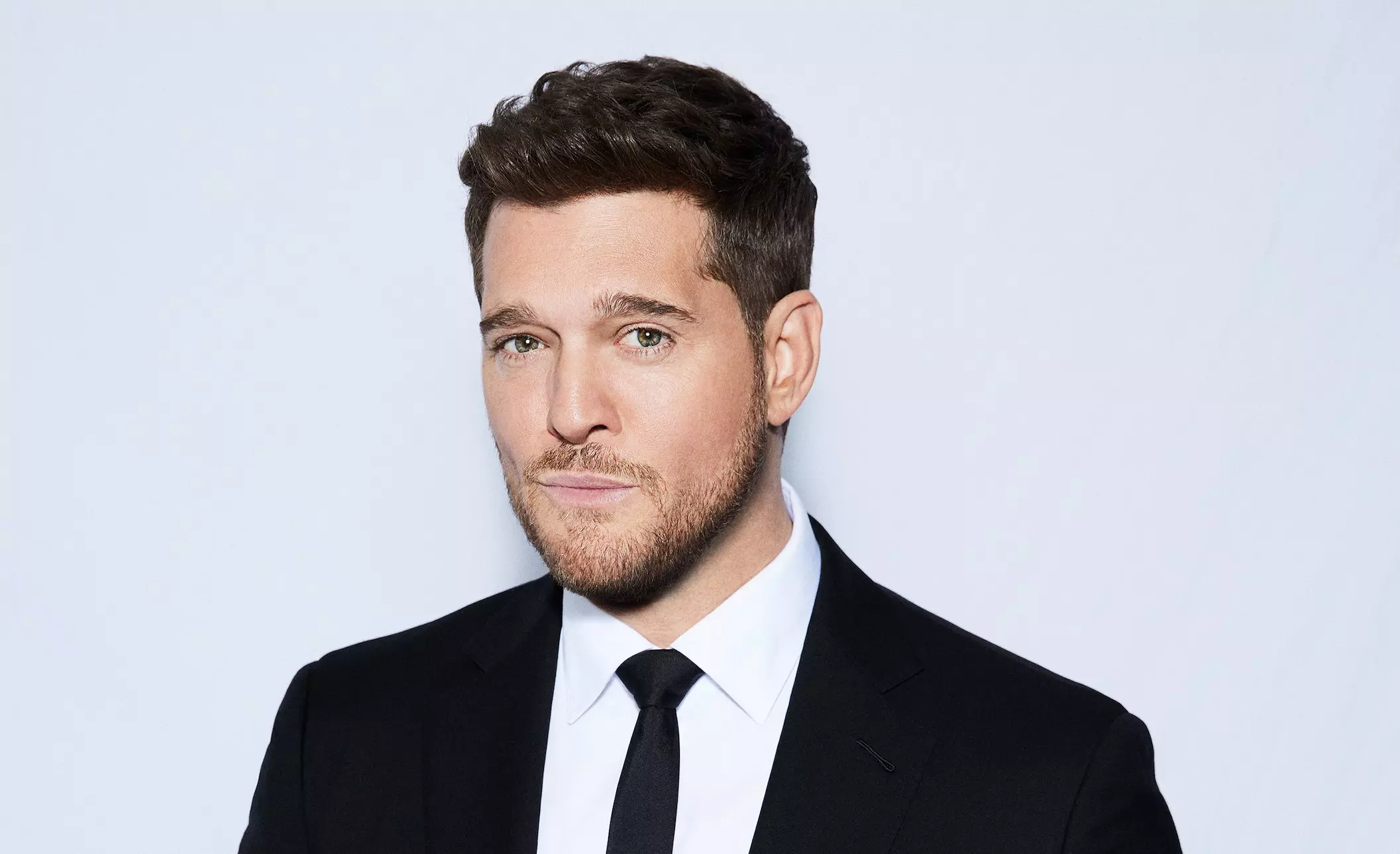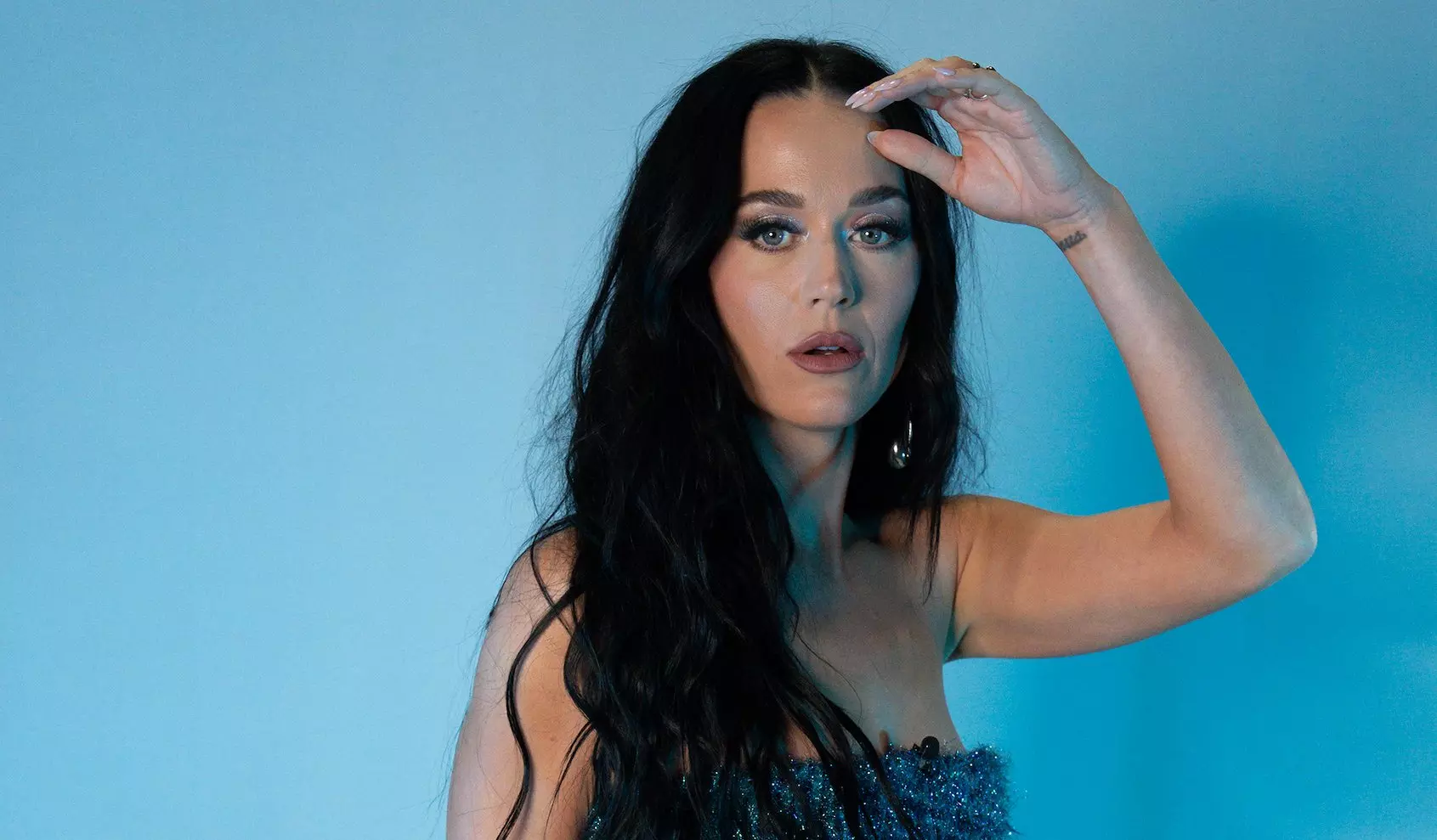Photo: Danielle Ernst
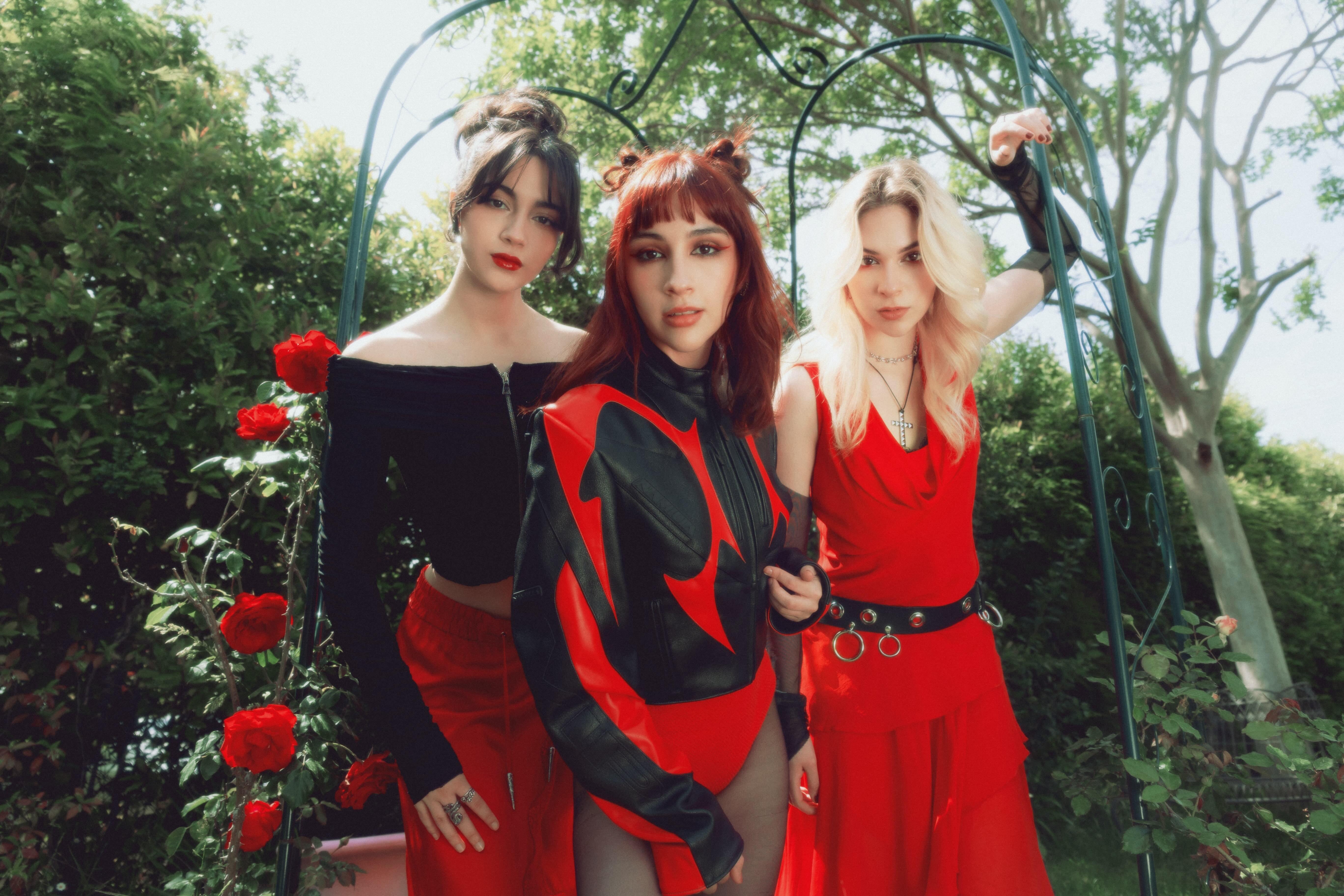
interview
Mexican Rockers The Warning On 'Keep Me Fed' & "The Possibility That We Could Literally Do Everything"
The three sisters of the whiplashing Mexican rock band The Warning sat down with GRAMMY.com to talk about their biggest recorded leap to date, 'Keep Me Fed.'
The Warning have been around for over a decade, with three previous albums under their belt — but they've never hit with gale force quite like their single "S!CK." Get a load of them on a recent "Kimmel" performance below; when singer/guitarist Daniela "Dany" Villarreal Vélez screams the title, her bandmates — her sisters, bassist Alejandra "Ale" Villarreal and drummer Paulina "Pau" Villarreal — respond with a groovy, steamrolling riff.
From harmonies to songwriting to sheer charisma, The Warning have reached a new pinnacle with their fourth album, Keep Me Fed, which arrived June 28. It's packed with bangers: the boiling-over "Apologize," the chugging, Spanish-language "Qué Más Quieres," and pop-laced detours that stick, like "Hell You Call a Dream."
The Monterrey, Mexico trio have opened for some of rock's titans over the past few years: Guns N' Roses, Foo Fighters, and Muse. This only incentivized them to make Keep Me Fed hit as hard as humanly possible.
This involved reaching out to rock's blue-chip writers, like Dan Lancaster and Mike Elizondo, to help the songs truly hit the jackpot. But speaking to the three on a four-way call, it's clear their success really relies on their sisterly synergy: they effortlessly bounce off each other in conversation, just like they do in the studio or on a stage.
Read on for a full interview with The Warning about the road to Keep Me Fed, songwriting in Spanish and English, and how supporting the greats spurred them to make a swing that connected.
This interview has been edited for clarity.
**Bring us from the Error era to Keep Me Fed. What transpired in The Warning's history?**
Pau: We grew so much as people, through our experiences touring with Foo Fighters, Muse and Guns N' Roses. You can't help but learn and grow from all of these experiences and shows.
We were very inspired, and I feel like Keep Me Fed was the first opportunity we had to sit down and actually process everything that we had been through, and just put it directly into the music.
Ale: We were recording and writing in between tours; we had a hectic schedule. I feel like you can definitely hear that chaotic energy, and everything we lived through this past year while writing the album.
You opened for some of the biggest rock bands on the planet. Tell me more about how that fed into the music.
Pau: Seeing these amazing musicians playing every night, you can't help but want to push yourself. What made us grow was that hunger to be better. We wanted to be a good opener for these legendary bands. We wanted the crowd to be impressed; we wanted to prove ourselves to these new crowds.
And, not only with our live performances: we knew we were going to write this album, and release new music. And if these new people were going to look for our new music, we wanted it to be this insanely huge step forward in our careers.
Musically, our biggest references are Muse and Royal Blood — and we toured with them. So, by seeing what they do live, and how their ideas are [executed], we had a really good idea of how we wanted our ideas to sound live.
Dany: Coming home from the tours to process everything that you went through, I think unconsciously you let everything out, and let everything go when you're writing music. I think that played a big part in what we came back to express in the Keep Me Fed songs.
Can you talk about working with outside writers on Keep Me Fed?
Ale: We've always only worked within the few of us, so adding someone else to the mix was very different. It's so interesting to see how other people work, and working with them, and hearing all of these different ideas. I feel like we learned so much from every person we wrote with.
Dany: We have three songs with Dan Lancaster, who is touring with Muse now; he's a great producer as well. We worked alongside our producer, Anton DeLost, for the whole record. They are such a dream team, honestly. They knew how to push us toward a direction that made us get the best out of us.
We were so surprised by the stuff we lived through — very intense, specific feelings, that they can relate to in a totally different way. We managed to connect the dots between feelings and what we wanted to express.
Pau: Also, they're not necessarily rock writers. Some of them are pop. Some of them are R&B writers. It's a really big melting pot of styles and inspirations and experiences.
You start learning little tricks and tips from each person. So now, even when we're writing alone, we channel everything that we learned from these individual writing sessions.
And I feel like we look at songwriting in a new way — especially because we are Mexican, and English is not our first language. So, we write in English with a very different mindset; we think in Spanish while we are writing in English. We see language in a more phonetic way.
So, finding new ways to look at the language that we write in, and new ways to communicate what we want to say through the words or eyes of these other writers, was a very enlightening experience.
The Warning - Qué Más Quieres (Official Video)
Keep Me Fed sounds absolutely massive. How did you craft that sound?
Dany: We were very focused on making it sound as big as possible, and as close to our live performance energy as we could. Guitar-wise, we explored a lot of different fuzz pedals, which was very new to me. I wasn't very much of a fuzz girl, but oh my god, it adds so much texture, and it added to the sound that we wanted to hear.
Also, we went a lot heavier with this album. I experimented with playing with baritone guitars, so I could be a lot lower than I usually am. I love that; it makes me feel so powerful, and I think it adds a lot to the songs.
Ale: I recorded all my bass parts with a pick, which is something I don't do; I only play with my fingers. But for the recording, it sounded clearer, and made the bass stand out, as we're only a three-piece. So, I liked exploring that.
Dany: I learned to play with a slide. I had never done that before. And I had to figure out how to play it live down the road. It really pushed us, and me, to stay sharp and do what was necessary for what we wanted to express in the music.
Vocally, I experimented with a lot of different textures. We usually just go all out and do this angry screaming that I know how to do from our 10-year career. But this time, I [explored] the dynamics more and more. I went soft, I went a little more airy, and then I screamed. It was fun to get to know myself more as a singer and guitar player.
Pau: We explored a lot of different styles. You can hear different [unexpected] influences. "Burnout" is really funky and groove-driven. "Apologize" is just a very angry song. "Sharks" is this type of new thing. It's just so varied.
We let ourselves be open to the possibility that we could literally do everything. We could try everything out, and it would still fit in this album, because it was still us.
Explore The World Of Rock

Kendrick Lamar & Imagine Dragons' GRAMMY Mashup
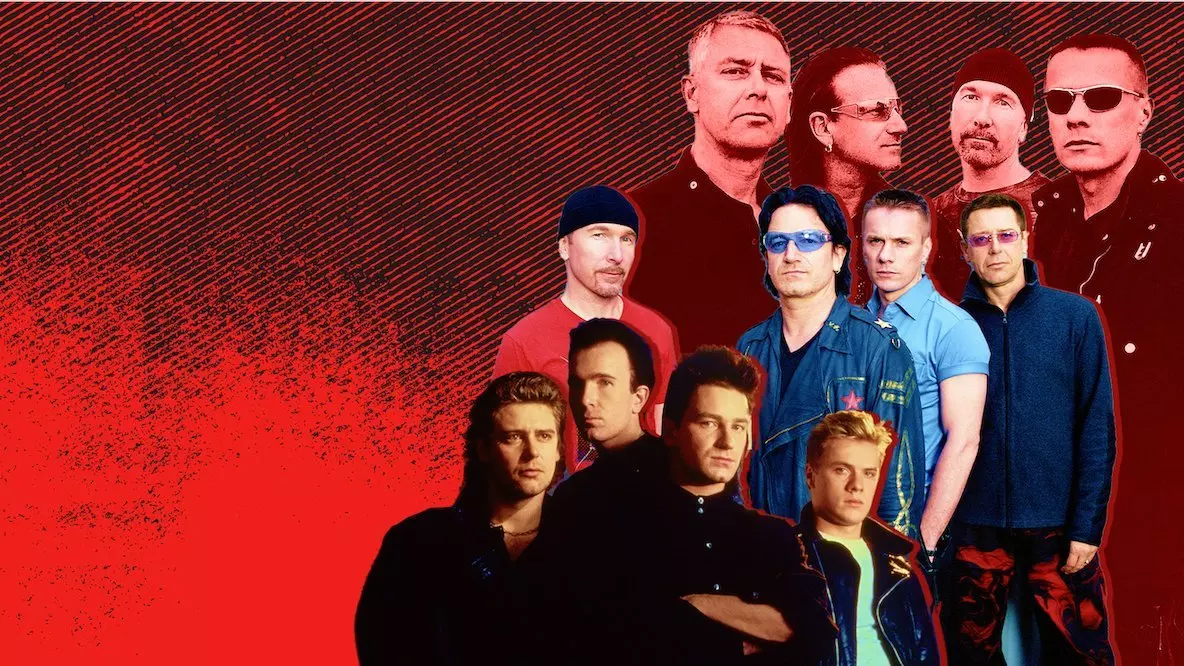
Songbook: A Guide To U2's World-Conquering Discography, From 'Boy' To 'How To Re-Assemble An Atomic Bomb'

Watch Robert Palmer Win His First GRAMMY In 1987

How Gwen Stefani's New Album 'Bouquet' Celebrates A Career Built On Love In All Its Forms
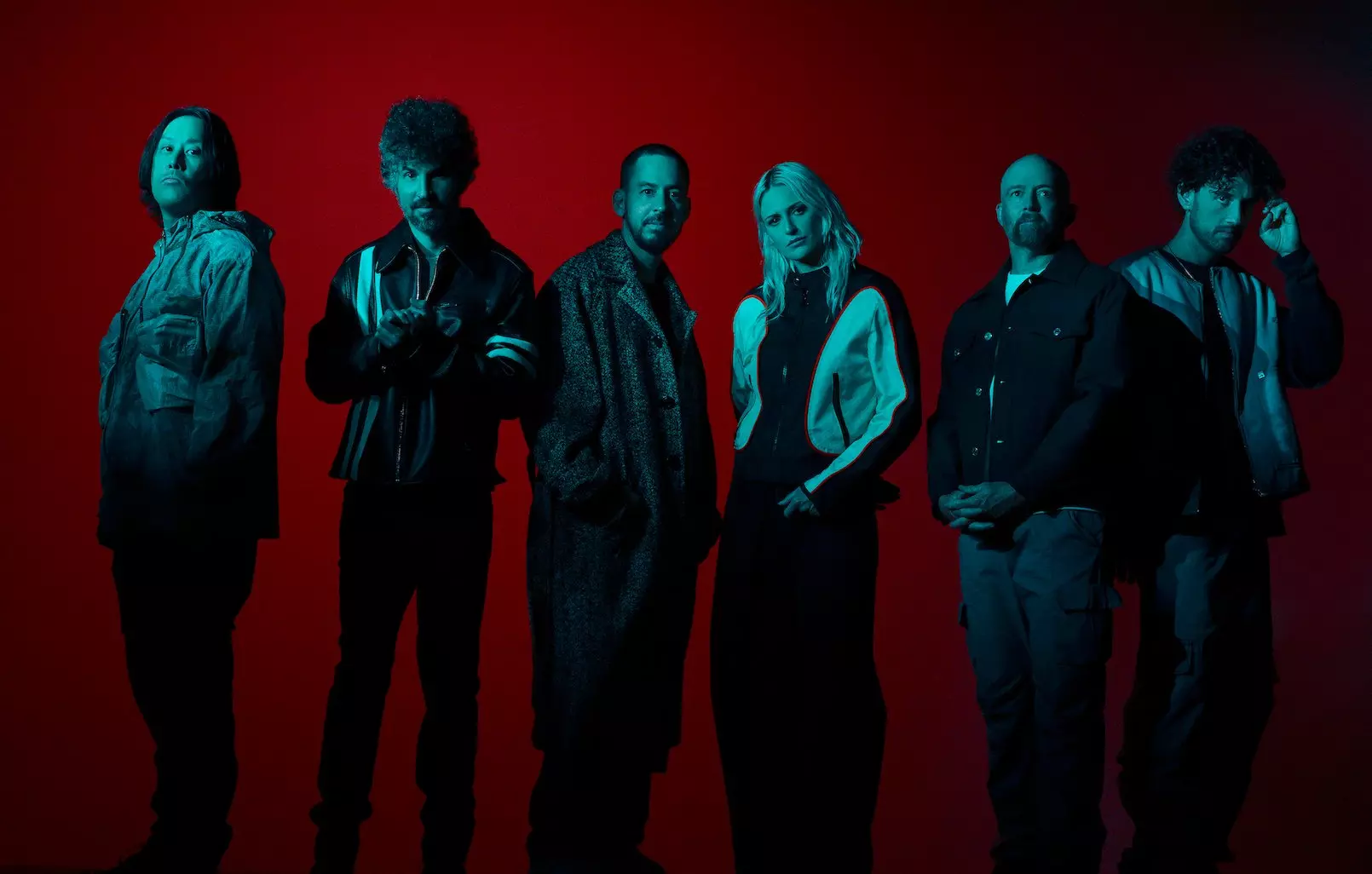
How Linkin Park's New Album Honors Chester Bennington
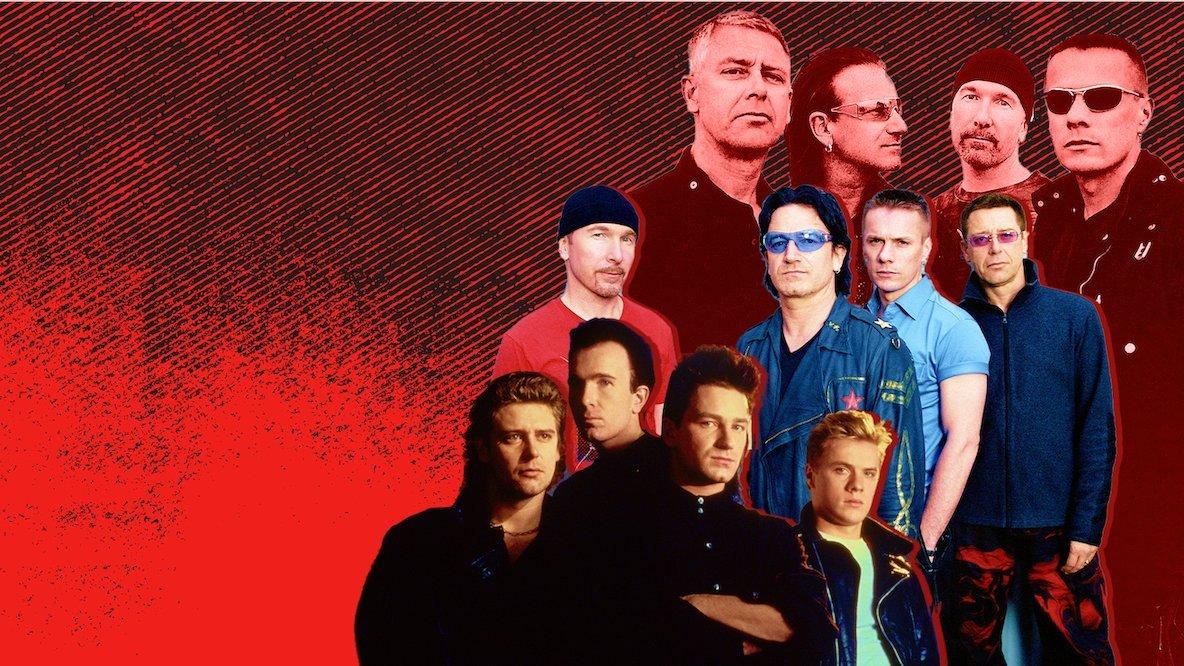
Photo: Aaron Rapoport/CORBIS OUTLINE/Corbis via Getty Images, Lester Cohen/Getty Images, Anton Corbijn
feature
Songbook: A Guide To U2's World-Conquering Discography, From 'Boy' To 'How To Re-Assemble An Atomic Bomb'
As the Irish rockers release the 20th anniversary edition of their eight-time GRAMMY-winning opus, revisit all of their albums and how each one contributed to making them one of the biggest bands of all time.
"U2 is an original species," frontman Bono once declared. "There are colors and feelings and emotional terrain that we occupy that is ours and ours alone."
Indeed, while Coldplay, Imagine Dragons and every other stadium rock band with a messianic figure have tried to muscle in on their territory, the world-conquering, world-saving quartet remain kings of their own frontier.
It was bassist Adam Clayton who set the wheels in motion for their remarkable rock 'n' roll journey, posting a bulletin board callout for like-minded musicians at his Dublin high school in 1976. Drummer Larry Mullen Jr., guitarist Dave "The Edge" Evans, and singer Paul "Bono" Hewson all successfully auditioned for what was initially a Rolling Stones/Beatles cover band, and after several changes in names, lineups and musical directions, the quartet eventually settled on pursuing a post-punk sound under the guise of U2.
Boasting a revolutionary spirit, unwavering self-belief, and near-universal ability to connect on an intimate level — even when holding court in front of packed-out stadiums — the group soon outgrew their humble beginnings. In fact, by the mid-'80s, spearheaded by the double whammy of a triumphant Live Aid set and chart-topping blockbuster The Joshua Tree, they'd established themselves as the biggest band in the world.
But U2 never rested on their laurels. Throughout the '90s, they continually pushed themselves and their loyal fans outside their comfort zones, embracing everything from alt-rock to electronica (and usually with a knowing wink, too) while also changing the game as a live act with numerous multimedia spectacles.
A celebrated return to the echo-laden, chest-beating antics of their '80s imperial phase on 2000's All That You Can't Leave Behind, meanwhile, reminded everyone of their uniting powers and introduced their signature sound to a whole new generation. Their 2004 set, How To Dismantle An Atomic Bomb — and its string of hit singles — ensured they maintained their cultural relevance well into the 21st century, too.
For the 20th anniversary of the latter, U2 released How to Re-Assemble an Atomic Bomb, an outtakes collection self-described as a "shadow album" of "unreleased gems" from that era. On the heels of the release, take a deep dive into the 22-time GRAMMY winners' massive career by decade.
The 1980s
After a handful of Ireland-only releases in the late 1970s, U2 announced themselves on the world stage in 1980 with their debut album, Boy, a typically confident coming-of-age whose literary references ("Shadows and Tall Trees" is named in honor of Lord of the Flies) and nods to concrete musique ("I Will Follow" is adorned with the sounds of bicycle spokes, bottle smashing and cutlery) instantly set the quartet apart from their post-punk peers.
A last-minute replacement for Joy Division producer Martin Hannett, Steve Lillywhite also steered 1981 follow-up October, a heavily improvised record that leaned much further into their spiritual beliefs. Their first MTV hit, "Gloria," for example, borrows the Latin chorus from Christian hymn "Gloria in Excelsis Deo," while "Tomorrow" is a heartbreaking prayer to God begging for the return of Bono's late mother.
But it wasn't until 1983's highly political War that the future world-conquerors began hitting the charts; it even knocked Michael Jackson's Thriller off the UK top spot. Surely the only Billboard Hot 100 hit inspired by the Polish Solidarity movement, "New Year's Day" has since become part of the U2 canon, as has "Sunday Bloody Sunday," a fervent protest song based on the Troubles of Northern Ireland ("The trenches dug within our hearts/ And mothers, children, brothers, sisters torn apart").
Bittersweet love song "Two Hearts Beat As One" also helped the timely named record ("War seemed to be the motif for '82," Bono later remarked) shift an eventual total of 11 million copies, while a triumphant performance at Red Rocks Amphitheatre captured on classic live album Under a Blood Red Sky capped off their Lillywhite era in 1983.
The band kickstarted their second phase in 1984 by teaming up with Daniel Lanois, and much to their label's despair, avant-garde maestro Brian Eno. Island Records needn't have worried, however. Although undoubtedly more experimental and atmospheric than their early oeuvre — see the ambient instrumental "4th of July" — The Unforgettable Fire equaled its predecessor's chart positions on both sides of the Atlantic and spawned their first U.S. Top 40 hit, the Martin Luther King Jr. tribute "Pride (In the Name of Love)." In fact, thanks to a triumphant set at Live Aid matched only by Queen's, U2 ended the album's campaign bigger than ever.
U2 built on its momentum by reuniting with the same producers for what would prove to be their first genuine blockbuster. Inspired by both the physical and cultural deserts of America, 1987's The Joshua Tree produced two Hot 100 number ones ("With or Without You," "I Still Haven't Found What I'm Looking For"), sold an astonishing 25 million copies worldwide, and enabled the Dubliners to embark on their first of many sold-out stadium tours. It also won two golden gramophones, including the coveted Album Of The Year in 1988; it has since been inducted into the GRAMMYs Hall of Fame and selected for preservation in the National Recording Registry by the U.S. Library of Congress (in 2014 and 2013, respectively).
Read More: GRAMMY Rewind: U2 Win Their First-Ever GRAMMY For 'The Joshua Tree' In 1988
The Joshua Tree's widescreen blend of gospel, folk and blues also solidified both Bono as one of his generation's most accomplished songwriters and, thanks to his pioneering echo-laden technique, The Edge as a bona fide guitar hero. Just seven years after emerging from their small-time hometown scene, U2 had evolved into the biggest rock band in the universe.
Keen to strike while the iron was hot, U2 documented their experiences as new superstars on a rockumentary and half-live/half-studio effort both named Rattle and Hum in 1988. While the former was dismissed as pretentious and self-congratulatory by movie critics, the latter maintained their day job's status quo, producing their first UK No.1, "Desire." Collaborations with legends Bob Dylan and B.B. King, meanwhile, also helped boost the band's credibility. Nevertheless, they appeared burned by the mixed response and at their final show of the decade, Bono hinted at a reset by announcing, "We have to go away and... dream it all up again."
The 1990s
U2 did indeed return both sonically and visually unrecognizable with 1991's Achtung Baby, its title perhaps a literal warning to diehard fans expecting more of the same. Embracing The Edge's newfound love of industrial, electronica and alt-rock and — even more surprisingly for a band previously considered humorless — a streak of semi-irony, its 10 tracks proved the Dubliners could move with the times.
"Mysterious Ways" and "Even Better Than The Real Thing" both tapped into the "baggy" sound that had made Manchester rock's new epicenter. While unlikely lead single "The Fly" — on which Bono adopted a wrap-around sunglasses-clad, skin-tight leather-donning, hell-residing alter-ego — appeared to take its cues from Nine Inch Nails.
"One," an alternative hymn even their biggest detractors had to concede was truly magical, showed that U2 could still play it straight. But it was the album's playfulness, further heightened by the multimedia experience of its accompanying Zoo TV Tour, that helped propel Achtung Baby to sales of 18 million, another No. 1 on the Billboard 200, and a fifth career GRAMMY.
Capitalizing on their momentum, U2 headed straight back into the studio for a similarly experimental follow-up inspired by the sensory overload of their recent arena shows. Co-produced by Eno, Flood and The Edge (who also takes a rare lead vocal on "Numb"), Zooropa is possibly the unsung hero of U2's imperial phase. It was their first album in nearly a decade that didn't provide any U.S. Top 40 hits. And yet, it contains some of their most audacious work; biblical closer "The Wanderer" pairs pulsing synths with the world-weary vocals of country legend Johnny Cash, while Bono — who frequently showcases the falsetto he nicknamed Fat Lady — has hailed "Stay (Faraway, So Close)" as a career best.
"We shall continue to abuse our position and f— up the mainstream," Bono claimed upon accepting the Best Alternative Music Performance GRAMMY in 1994. And they continued to subvert expectations, duetting with Italian tenor Luciano Pavarotti on "Miss Sarajevo" (the highlight of their 1995 album Original Soundtracks 1 recorded with Eno under the guise of Passengers), and unleashing what Bono described as "the most expensive demo session in the history of music" with 1997's Pop.
Rush-recorded to meet a deadline for a tour plagued by technical problems (remember the Spinal Tap-esque moment the band got stuck in a giant mechanical lemon?) Pop has been repeatedly tinkered with since its release. But the propulsive electro-rock of lead single "Discothèque," Underworld-inspired techno of "Mofo," and chiming psychedelia of "Staring at the Sun" were already engaging in their original form.
U2 capped off their roller coaster 1990s with their first official "Best Of" compilation, albeit one that only spanned the previous decade; its re-recording of B-side "The Sweetest Thing" deservedly became a belated hit. But not for the first time, the foursome approached a new decade with a sense of uncertainty about their place in the pop landscape.
The 2000s
Once again, though, U2 proved that you should write them off at your peril by releasing a record that played to their greatest strengths. After a decade of experimentation, 2000's All That You Can't Leave Behind took an unapologetically back-to-basics approach no doubt spearheaded by the return of their three-time dream team Lanois and Eno.
Anthemic lead single "Beautiful Day" immediately set the throwback tone, not least for the fact it threatened to burst into A-ha's '80s classic "The Sun Always Shines on TV." And Tomb Raider soundtrack cut "Elevation" as well as "Walk On" each possessed a similar fist-pumping stadium rock quality, too. But their greatest display of songcraft over studio trickery appeared courtesy of its quietest moment, "Stuck In a Moment You Can't Get Out Of," a poignant tribute to Bono's late friend Michael Hutchence.
The GRAMMYs were certainly taking note, showering the four-piece with seven awards between 2001 and 2002; the album also helped U2 win Record Of The Year two years in a row ("Beautiful Day" in '01 and "Walk On" in '02). On the promotional trail, Bono had talked of "reapplying for the job of the best band in the world." With such an adulatory critical response, not to mention 12 million sales, no recruiter could turn them down.
Remarkably, U2 bettered their GRAMMY tally with 2004's How to Dismantle an Atomic Bomb, winning all eight of its nominated categories between 2005 and 2006, including Album Of The Year and Song Of The Year for "Sometimes You Can't Make It On Your Own," a gorgeously meditative ballad about the death of Bono's father. Consecutive Best Rock Song winners "Vertigo" and "City of Blinding Lights," however, were more indicative of what was self-described as "our first rock album."
Read More: GRAMMY Rewind: Watch U2 Win Album Of The Year At The 2006 GRAMMY Awards
The band continued to keep their finger on the pulse, lending its lead single, "Vertigo," to help market the iPod and teaming up with American Idiot-era Green Day on a cover of The Skids' "The Saints Are Coming." An induction into the Rock and Roll Hall of Fame upon their first nomination, meanwhile, appeared to perfectly place them between the old and the new.
But the five-year wait for No Line on the Horizon — the longest between albums in U2's career — then left them playing catch-up. Nevertheless, the record still topped the charts in 30 countries and spawned the highest-grossing tour ever at the time where songs such as "I'll Go Crazy If I Don't Go Crazy Tonight" and "Magnificent" appeared to connect with fans far more effectively.
The 2010s
After providing the songs for troubled Broadway musical "Spider-Man: Turn Off the Dark," Bono and The Edge got back to the day job, firstly winning a Golden Globe for U2's contribution to Mandela: Long Road to Freedom (the uplifting "Ordinary Love"). The band then paid tribute to their musical heroes on 2014's Songs of Innocence alongside a who's who of modern hitmakers (Danger Mouse, Ryan Tedder, Paul Epworth). "This Is Where Can You Reach Me Now," for example, was inspired by seeing The Clash in concert as teens, while opener "The Miracle (of Joey Ramone)" celebrated the formative influence of the titular punk rocker.
Unfortunately, the album's unorthodox release strategy completely overshadowed its content. Its automatic download to every iTunes account sparked the biggest backlash of U2's career: their fellow musicians, and the industry as a whole, argued that the stunt had devalued music. And in an age where the phone is the ultimate prized possession, most customers were frustrated that their personal libraries had been modified without their consent.
U2 wisely returned to more conventional distribution methods for 2017's Songs of Experience, a semi-conceptual album for which Bono penned musical letters to the most important people in his life. These included wife, Ali ("You're the Best Thing About Me"), daughters Jordan and Eve ("Get Out of Your Own Way") and the band's loyal fans ("The Showman (Little More Better)"), while "Lights of Home" directly addressed God in the wake of the singer's life-saving heart surgery.
Proving they still had their fingers on the pulse, U2 also sought assistance from Lady Gaga,Haim andKendrick Lamar, the latter returning the favor after the group guested on DAMN. track "XXX" earlier in the year. And commercial order was restored when Songs of Experience topped the Billboard 200, making them the first act to achieve such a feat every decade from the 1980s onward.
The 2020s
U2 have largely spent the 2020s looking backward. In 2022, Bono reflected on his remarkable life story with his long-awaited memoir, Surrender, heading out on a national book tour to promote it.
On 2023's Songs of Surrender, the band gave 40 tracks from their vast back catalog — from the ubiquitous ("With or Without You," "Beautiful Day") to the deep cuts ("Stories for Boys," "Cedarwood Road") — the "MTV Unplugged"-esque treatment. They also changed the occasional odd lyric to reflect modern times; "Walk On" was repurposed as a tribute to Ukrainian president Volodymyr Zelenskyy. That same year, they also appeared in Kiss The Future, Nenad Cicin-Sain's acclaimed documentary that charted their historic 1997 show in war-torn Bosnia.
U2 also revisited their eight-time GRAMMY winning LP with How to Re-Assemble an Atomic Bomb, adding 10 previously unreleased tracks to the 2004 original including classicist "Country Mile." But their most awe-inspiring throwback appeared courtesy of their Achtung Baby-focused residency at Las Vegas' The Sphere. Documented on V-U2 An Immersive Concert Film, the show's highly immersive, pioneering production proved that, nearly 50 years since their formation, U2 still possesses the power to transfix.
Latest News & Exclusive Videos

Khatia Buniatishvili Plays "Mephisto-Waltz No.1"
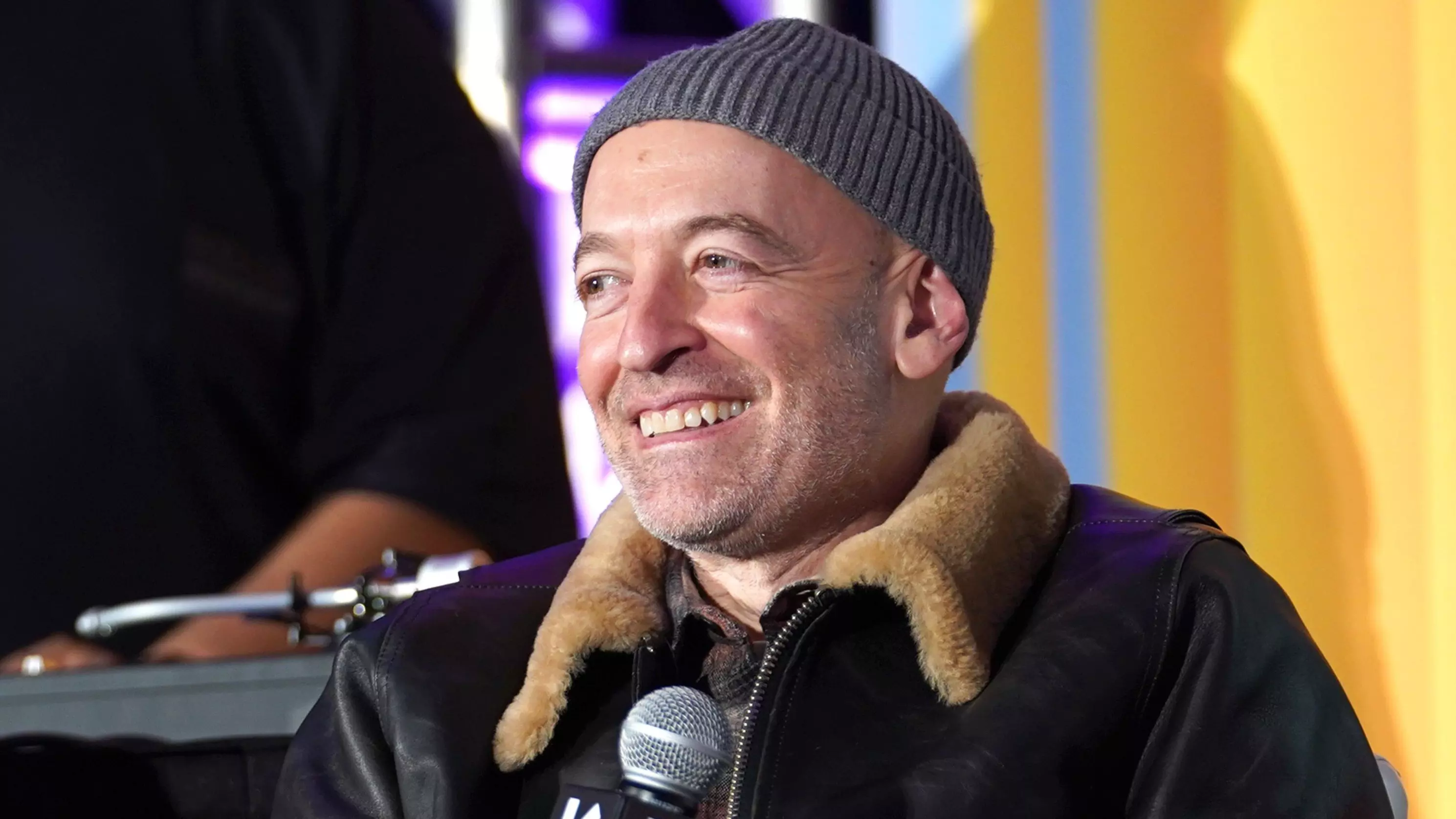
Peanut Butter Wolf Talks New Campus Christy Album & What's Next For Stones Throw

Warner Music Group's Paul Robinson To Be Honored With 2025 Entertainment Law Initiative Service Award

Your Vote, Your Voice: 6 Reasons Why Your GRAMMY Vote Matters

JOHNNYSWIM Reveal The Mic That Defines Their Sound

Photo: Denise Truscello/Getty Images for iHeartRadio
feature
How Gwen Stefani's New Album 'Bouquet' Celebrates A Career Built On Love In All Its Forms
As the pop veteran releases her first album in seven years, look back on the journey of romance, heartbreak and self-acceptance that led to her blooming marriage to Blake Shelton — and her happiest album yet.
Long before it became a viral TikTok trend, Gwen Stefani's pouty declaration of "I'm just a girl" on No Doubt's 1995 breakthrough single was simply an honest affirmation. She wailed about the frustrating tug of war between empowerment and vulnerability that came with womanhood — and she's been wearing her heart on her sleeve just the same ever since.
The three-time GRAMMY winner first made herself known as the quirky frontwoman of No Doubt, taking the reins of the male-dominated rock world before venturing into solo pop stardom and building her own brand along the way. But no matter her level of stardom, Stefani has never shied away from displaying her private life.
Love and music are a pairing just as tight-knit as Stefani's signature platinum locks and crimson lips. She has sung about the ebbs and flows of romance since the beginning of her career, from the pained realization of a relationship's end on "Don't Speak" (from No Doubt's 1995 album, Tragic Kingdom), to yearning for a "simple kind of life" on the band's 2000 LP, Return To Saturn, to navigating a divorce on her 2016 solo album, This Is What the Truth Feels Like. Her latest set, though, is blooming with a healthy love.
Bouquet, Stefani's fifth solo album and first in seven years, is heavily centered around her past, present and future with husband Blake Shelton. While the country star seems like the complete opposite match for a ska princess — who met Shelton while both were coaches on NBC's "The Voice" in 2014, and they've been married since 2021 — Stefani attributes the positive shift in her music to meeting him.
"For me, what happened in the breakup of my family, I had to try to pick up the pieces. Out of that was new love. Not only new love, but real love," Stefani tells GRAMMY.com on how her confidence blossomed over the years. "I don't feel like I ever experienced that until I felt what it really felt like to be loved. When someone loves you in a pure way, it does make you feel like you can see inside of yourself what they're seeing for the first time.
"Love is hard to explain, but there's something spiritual about it. I feel like we're all constantly blooming and re-blooming," she continues. "We are growing and evolving, and out of pain, usually you find things inside of yourself that you didn't know you had. Being able to have an outlet like songwriting to be able to learn from yourself is an incredible blessing that I have been given."
"We can watch our garden grow," Stefani croons on album cut "Reminders." While the line refers to Shelton, it's a fitting sentiment for the year she's had. Bouquet arrives just three days after the 20th anniversary of her GRAMMY-nominated debut solo album, Love.Angel.Music.Baby, and seven months after the singer reunited with No Doubt at Coachella — their first performance together in nine years.
As "Reminders" displays, Stefani blissfully sings about finally finding peace and hope on Bouquet. Though it's her most upbeat celebration of love to date, it's also a culmination of the journey she's endured navigating it in all its forms — from very public breakups, to motherhood, to spirituality and finally finding true love.
Stefani's career began as the lead vocalist of No Doubt in 1986. Following a breakup with band member Tony Kanal, she used the band's breakout third album — 1995's Tragic Kingdom — as her personal diary. The singer co-wrote all but one song, and the rawness of the lyrics shot Tragic Kingdom to No. 1 on the Billboard 200 chart. Stefani continued to weave in her love life in the music, from wanting to be a wife on 2000's Return of Saturn and struggling with a long-distance relationship on 2001's Rock Steady.
Her growing confidence as the band's co-writer led to her solo debut album, 2004's Love. Angel. Music. Baby. The album was a complete departure from No Doubt, as Stefani experimented with glossy '80s electro-pop, new wave, hip-hop, R&B, and even spoken word. While the first three singles presented more of her confident, commanding frontwoman side — including the Billboard Hot 100-topping smash "Hollaback Girl" — and the album featured themes of money and partying at the club, love remained at the forefront.
"Born to blossom, bloom to perish/ Your moment will run out 'cause of your sex chromosome," she reminds herself about wanting to be a mom on lead single "What You Waiting For?" On "Cool", she accepts her friendship with No Doubt's Kanal after healing from their breakup. Album cuts "The Real Thing" and "Serious" best show off Stefani's romantic side; the latter served as a love letter to her then-husband, Bush frontman Gavin Rossdale, and "Serious" declared in the first verse, "Call the doctor cause I am sick in love/ And I can't help it."
"There was so much freedom in my own heart and soul," Stefani says of her early solo days. "I had such a clear direction and I felt like I couldn't be stopped. The ideas and clarity on the art that I was creating was so easy to access. There was something so pure about this."
L.A.M.B. achieved massive success, debuting at No. 7 on the Billboard 200 chart and earning six GRAMMY nominations, including one for Album Of The Year. The album's success is attributed to not only Stefani stepping out of her sonic comfort zone, but her maintaining the same authenticity she brought to No Doubt's music.
"People know when something is authentic and something is not trying to do anything but just be – maybe that's why [it resonated]," she says. "It was simply going to be my fun, dance, guilty pleasure album and me trying to recreate things that inspired me from high school. I feel super grateful to reach anyone with the music that I've created."
By the time she delivered 2006's The Sweet Escape, Stefani had experienced big life changes, Along with becoming a first-time mom, she was dealing with marital issues, which she alludes to throughout the album — and, ultimately, led to a more melancholy feel than its predecessor.
On the title track, she envisions a fantasy to avoid real-life problems ("I can see that you're angry by the way that you treat me/ Hopefully you don't leave me, wanna take you with me"), and tries to hold on to her relationship on the "4 In The Morning" ("All I wanted was to know I'm safe/ Don't wanna lose the love I've found"). While the album may not express a happy love, it uncovered a deeper side of her vulnerability.
Within the decade after The Sweet Escape, Stefani took some time away from music as she focused on motherhood (she had another son in 2008). She reunited with No Doubt on 2012's Push and Shove, their first album in 11 years, which refueled Stefani to work on her third solo album. But it would still be four years until a full album materialized, as 2014 marked both the birth of her third son and her first season on "The Voice." A year later, Stefani endured a major life change: divorcing Rossdale, after discovering his alleged infidelity.
The heartbreaking revelation led to 2016's This Is What the Truth Feels Like. The super-confessional album revealed Stefani's healing process following her divorce (the tearful "Used To Love You" and the scornful "Red Flag"), but it was balanced by her new love with Shelton after meeting on "The Voice." From the bubbly "Make Me Like You" ("Thank god that I found you," she sings) to the yearning on "Misery" ("I'm thinking things I never thought before/ Like what your love would taste like/ Give me more," she pleads) to the flirtatious "Send Me A Picture," Stefani was shamelessly reveling in newfound happiness.
"I look back at each album that I've been part of and think about how they came about and what the inspiration was; and what I was going through at the time," Stefani says. "This Is What The Truth Feels Like was a unique album because this was the worst time of my life and the only thing I could turn to was God, prayer, my family, and music. It was the only way I knew how to save myself. I started writing that record so I wouldn't go crazy.
"I made the album quickly, in about eight weeks. About halfway through writing it I had this gift of love that was right there. I didn't know it was going to be there and I got to write about that," she continues. "It was an expression of two things happening at one time — something ending and something bringing me back to life. I wasn't thinking too much about the production on this album, it was more me trying to get out lyrically what I needed to get out."
Following This Is What the Truth Feels Like, Stefani's aura felt lighter and more self-assured as she reclaimed her confidence as both an artist and a woman.
This shift was mainly attributed to her adoration for Shelton, which thus inspired her music after that. He was featured on the title track of Stefani's bubbly holiday set, 2017's You Make It Feel Like Christmas, and they released two country duets in 2020, "Nobody But You" and "Happy Anywhere." Though the singles were Stefani's first foray into the genre, her chemistry with Shelton resonated: both went to No. 1 on Billboard's Country Airplay chart.
Stefani also dabbled in ska again with 2020's "Let Me Reintroduce Myself" and 2023's "True Babe," but even she admits that wasn't the right direction ("I was circling the past and I kept going around these cul-de-sacs," she says). So she stuck to her instincts: recording blissful tunes that emulated her life.
The winding roads of Stefani's career — and love life — have now led to 2024's Bouquet, which she deems a "whole different energy." But while the cover features Stefani rocking a cowboy hat and the album was recorded in Nashville with famed country producer Scott Hendricks, it's far from a country album. Rather, the 10-track project is a wistful blend of '70s-inspired pop and yacht rock that reflects the joy Stefani feels.
"I got engaged and married, so writing this album was writing about this new part of my life. When I finished doing the songs, I felt uncomfortable about the production — not because I didn't love it, because I did, but it just felt like I was repeating myself," she says. "It felt like when you go back into the closet and find something old from high school and try to put it on and think it's going to look good and it's just not working anymore. I didn't want to try to compete with the past at all.
"In my mind, it was clear — I needed to go in and make the record have no genre and make the sound creative with live musicians and make it feel live," she adds. "The combination of the pop songwriting and the organic live band is what created the sound of Bouquet, [which] sounds unique from anything else I've done."
The album documents Stefani's eight-year transition following the weighty This Is What The Truth Feels Like. Lead single "Somebody Else's," also the album's opening track, summates the healing she's done in order to unlock this new life chapter. "Everyday with you is rock bottom/ Leavin' you saved me, my God/ Look at me blossom/ You're somebody else's problem," she says with a wink on the chorus.
From there, Stefani leaves that past behind as she gushes about being so deep in love and not wanting to mess it up. The ballad "Swallow My Tears" discusses how an old relationship can impact a new one. "The past keeps chasin' me around/ I thought I lost it but then it found me/ Like it always does/ Dragging me back to who I was," she reflects. "Give me a second I need to swallow my tears."
The ballad is one of the singer's most honest songs to date. As a result, she says recording it felt like an emotional release: "I've been learning through my spiritual faith journey that it's about growing, learning, evolving, getting better and trying to become the person that you're meant to be in the world."
Part of Stefani's journey is rooted in reassurance, which ties "Purple Irises," her breezy country-pop duet with Shelton, together. One of the first songs written for the record, it adds another chapter to her fairytale life with Shelton. "I got you, and you got me/ And do you still think I'm pretty? And are you happy?" Stefani ponders even after years deep into her marriage.
She uses flowers as a metaphor for their relationship throughout the entire album, with the most autobiographical moment being the title track. "We met when my heart was broken/ Thank God that yours was too/ So lucky that you were going through what I was going through," she reflects on the opening verse. (Shelton was also going through a very public divorce from Miranda Lambert as their relationship started to, well, blossom.)
Stefani continues to bare her soul, confront her insecurities on "Pretty" ("I never felt pretty 'til you loved me/ I always felt pretty unlucky") and showcasing her appreciation for finally finding a healthy relationship on "Empty Vase." "Why did it take so much time?/ You've always been the one I've been trying to find/ I know you'll raise my sons right," she tearfully sings atop tender acoustic strings. And for No Doubt fans nostalgic for Stefani's pre-mainstream punk days, Bouquet's rocking "Late To Bloom" shows the singer hasn't forgotten her roots.
The singer's artistry is kaleidoscopic, from being a ska princess to pop's Hollaback Girl to a chart-topping country duet partner. But Bouquet is a reminder of what has always made her music so enduring, and what still resonates after three-plus decades: her vulnerability.
"I think we all go through points in our life when we question, 'What is my purpose?' When I found out I could write songs, and those songs had the impact they had, it was clear this might be my gift," Stefani explains. "I get so much joy and satisfaction. I feel like I have something to offer to the world when I'm writing songs.
"It's the most incredible thing to have a song that captures a moment in my life that talks back to you, heals you, and you learn from it," she adds. "The hope is that someone else can get that same blessing from the song. The struggle is worth it."
The Latest Pop Music News & Releases

Photo: Jason Koerner/Getty Images
news
Watch: The Warning Bring Hard Rock Power To The 2024 Latin GRAMMYs With "Qué Más Quieres"
The Mexican trio capped off a banner year with their first performance at the 2024 Latin GRAMMYs.
The Warning have four albums in their discography, but the sibling trio's latest LP, Keep Me Fed, helped them earn their first Latin GRAMMY nomination. And to celebrate, the three sisters from Monterrey, Mexico, delivered a charged-up performance of their Best Rock Song-nominated track "Qué Más Quieres."
Following a warm introduction from rock legend Juanes, Daniela, Paulina and Alejandra Villarreal Vélez turned the full-force of their rock firepower on the audience with the Spanish-language power ballad, making for an exhilarating Latin GRAMMYs debut.
The trio sing in English more often than Spanish, but performing this single allowed them to show off just how expressive they can be in their first language. It was an incendiary moment in a night already packed with unforgettable performances.
Keep Me Fed marked a watershed moment in the band's career. Along with spawning their first Latin GRAMMY nomination, it was their first album to appear on multiple charts internationally, even rising to No. 1 on the UK Rock & Metal Albums Chart.
Check out the complete list of winners and nominees at the 2024 Latin GRAMMYs.
Latest In Latin Music, News & Videos
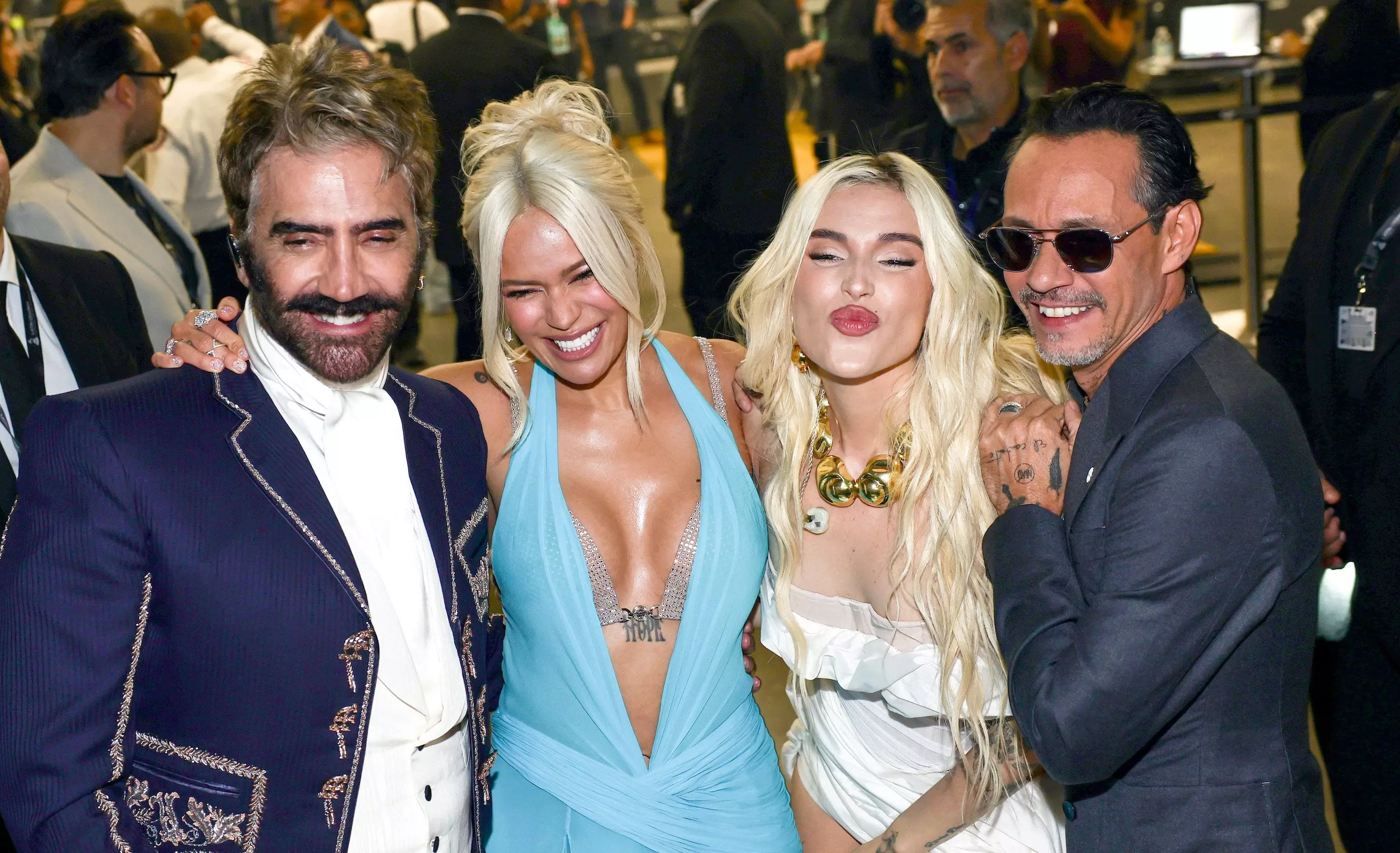
10 Meaningful Moments From The 2024 Latin GRAMMYs: Karol G's Heartfelt Speech, Tributes To Late Legends & More
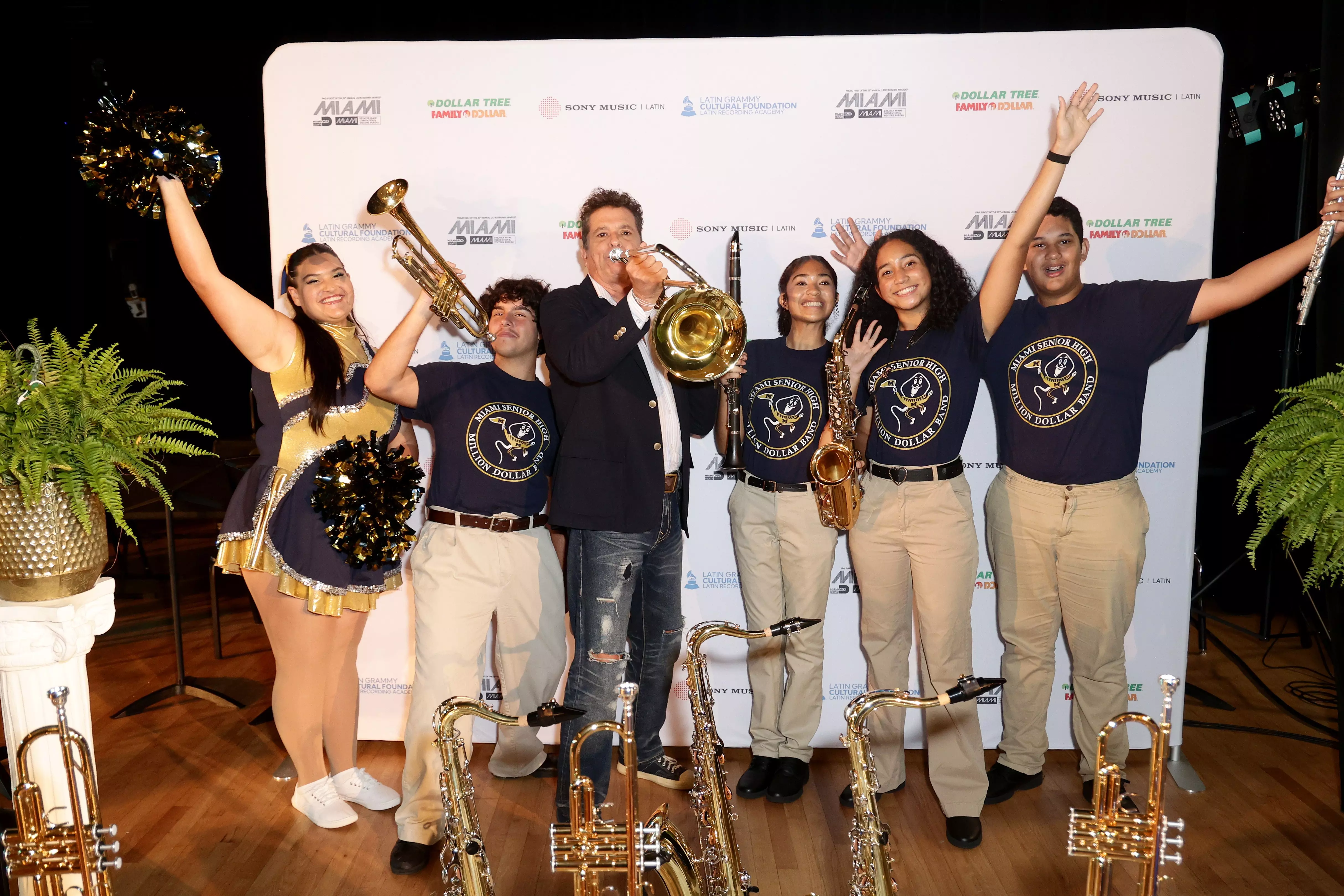
Behind The Scenes At Latin GRAMMY Week 2024: Inside VIP Celebrations & More
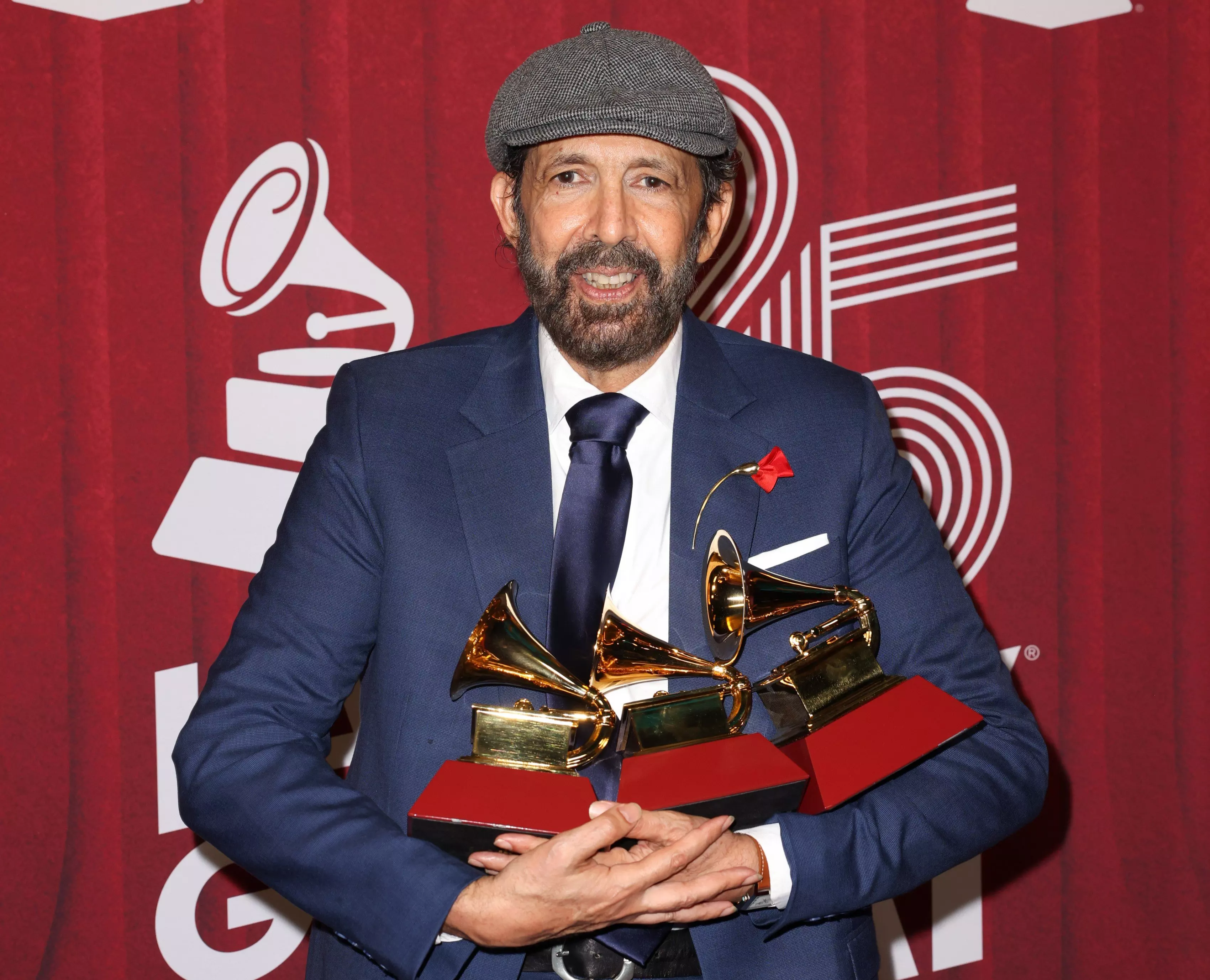
Juan Luis Guerra Sweeps The 2024 Latin GRAMMYs With 'Radio Güira'

Watch: Luis Fonsi Performs "Despacito" & Two More Of His Classics At The 2024 Latin GRAMMYs

Watch: Juan Luis Guerra 4.40 Wins Album Of The Year For 'Radio Güira' | 2024 Latin GRAMMYs
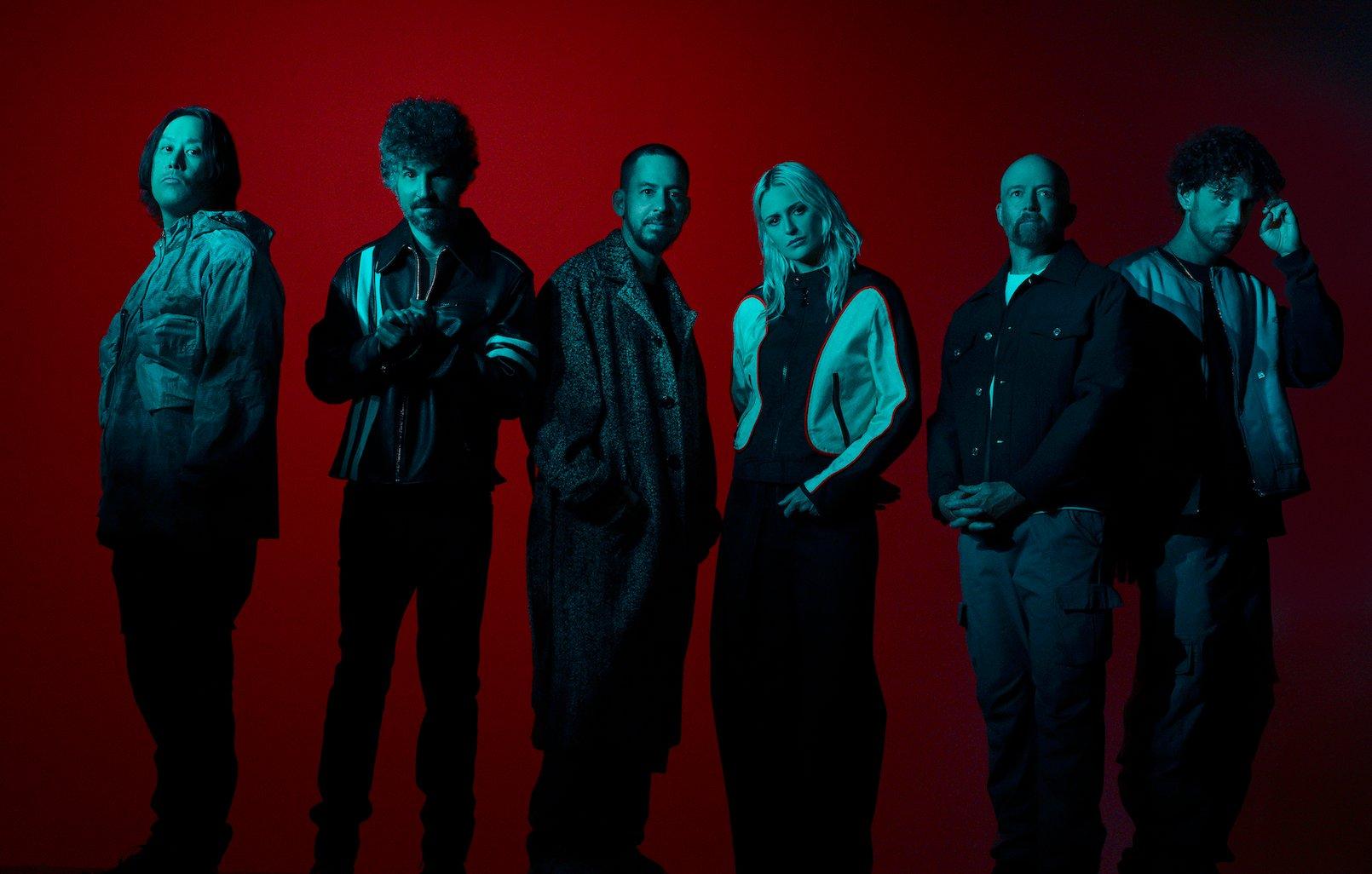
Photo: James Minchin
feature
How Linkin Park's New Album Honors Chester Bennington
With 'From Zero,' Linkin Park ushers in a new chapter featuring a female singer. But as the music and the band ensure, it's simply a continuation of the legacy that the late Chester Bennington helped build.
Linkin Park became ubiquitous with their 2000 debut LP, Hybrid Theory, and reinforced their status as the 21st century's definitive nu-metal band with each album thereafter. But it's been seven years since Linkin Park released new music, priming a new generation to discover their one-of-one impact — including Mike Shinoda's daughter.
In September, the band's co-lead vocalist and producer told Jimmy Fallon about a recent instance when his daughter rejected his attempt to teach her how to play guitar. As he recalled, it wasn't until his wife, Anna, intervened and told her she should listen to him: "My daughter goes, 'What does he know about performing?'"
Shinoda's daughter — along with 11 million other viewers — were reminded of Linkin Park's instinctive magnetism during the Linkin Park: FROM ZERO global livestream in early September. The performance coincided with the announcement of From Zero, the band's first LP since frontman Chester Bennington died by suicide on July 20, 2017, as well as the introduction to a new lineup.
Shinoda, lead guitarist Brad Delson, DJ/turntablist Joe Hahn, and bassist David "Phoenix" Farrell reconnected with the innocent, pure creativity that catapulted Linkin Park in the first place. But adding Dead Sara's Emily Armstrong as the new co-lead vocalist and Colin Brittain in place of Rob Bourdon on drums crystallized From Zero, due Nov. 15, and served as the latest iteration of a legacy built on reinvention.
"Before Linkin Park, our first band name was Xero," Shinoda said in a From Zero press release statement. "This album title refers to both this humble beginning and the journey we're currently undertaking. Sonically and emotionally, it is about past, present, and future — embracing our signature sound but new and full of life. It was made with a deep appreciation for our new and longtime bandmates, our friends, our family, and our fans. We are proud of what Linkin Park has become over the years and excited about the journey ahead."
The first taste of From Zero was "The Emptiness Machine," an explosive, guitar-laden track that possesses similarly heightened lyrics and experimental sonics to Linkin Park's past material. Within two weeks of its release, "The Emptiness Machine" hit No. 1 on Billboard's Hot Hard Rock Songs chart, where it remains after nine weeks as of press time. With a six-week run atop the Mainstream Rock Airplay chart as well, the song's success showed that there was still an unwavering attachment to Linkin Park, no matter the lineup.
Several comments on the video for "The Emptiness Machine" further proved that. "No, she doesn't sound like Chester. But she sure sounds like Linkin Park," one fan wrote. As another added, "Emily roars like a lion and it's amazing that I feel like I can feel Chester roaring in the background. Thank you for coming back."
Naturally, there were some skeptics of the new iteration, including Bennington's mother, Susan Eubanks, and his son, Jaime (Eubanks told Rolling Stone that she feels "betrayed"; on social media, Jaime accused Shinoda of "quietly erasing my father's life and legacy in real time"). But as Shinoda reassured fans at a recent performance, "It is not about erasing the past. It is about starting this new chapter into the future and coming out here for each and every one of you."
Fans can also rest assured that Armstrong wants to honor Bennington, not replace him. In fact, Bennington was who helped Armstrong realize her potential as a frontwoman.
"I was in a band when [Hybrid Theory] came out," Armstrong recalled to Billboard. "'One Step Closer' was the song for me, and I was just like, 'Holy s—, that's what I want to do. As a singer, I want to be able to scream.' That album was everything. I've listened to it a trillion times."
When it comes to the importance of her role, she added, "I'm on cloud nine, but then it hits you that there's a lot of work to be done. And going into these [older] songs, by a singular voice that's beloved by so many people — it's like, 'How do I be myself in this, but also carry on the emotion and what he brought in this band?'"
After all, Linkin Park was predicated on Bennington's boundless, fearless voice. Shinoda wrote a January 2018 op-ed for Kerrang! describing meeting Bennington: "I knew Chester Bennington was going to change my life from the moment he opened his mouth to sing… Chester was so great that day, the guy who was waiting to try out after him just left. He knew. Even though we'd sent Chester our songs beforehand, he later admitted to me that he'd never done a screaming or yelling part on a track before. That was shocking to me. He could do it better than anyone I'd ever heard."
The industry failed to see what was right in front of them several times over; labels passed on Linkin Park before and after Bennington joined. As Shinoda suggested to Vulture in 2023, "Here's what I assume they thought: Our thing, the combination of elements, was too esoteric. We loved DJ Shadow, Fatboy Slim, Moby, Aphex Twin, and Portishead… With that stuff in the music, labels were like, 'Who's going to listen?' And then on top of it, we were more introspective. What we didn't like about what was going on in the scene was that it was very frat rock. It was toxic masculinity."
As it turned out, their unexpected mash-up of hip-hop, alternative, and full-throttle rock resonated in droves. Reaching No. 2 on the Billboard 200, Hybrid Theory became the top-selling album in the U.S. in 2001, and by April 2002, it was 8x Platinum-certified by the Recording Industry Association of America (as of press time, the album is now 12x Platinum). Their uninhibited musicality — led by Bennington's piercing, raw scream-singing and complemented by Shinoda's melodic rapping — was exactly what made Linkin Park stand out, and what helped them push the boundaries of what rock can be ever since.
As Shinoda noted, Linkin Park also resonated because they weren't afraid to be vulnerable. Hybrid Theory's "Crawling" and the diamond-certified "In The End" cemented Linkin Park's unique position to soundtrack teenage angst (or confusing emotional intensity of all ages) before ruthless vulnerability was normalized in the mainstream.
Because Hybrid Theory established such an eclectic sonic palette as their baseline, Linkin Park was free to tinker sonically. Their unprecedented genre-melding and emotional honesty proved to be a winning recipe; 2003's Meteora, 2007's Minutes To Midnight, 2010's A Thousand Suns, 2012's Living Things, and 2017's One More Light each debuted at No. 1 on the Billboard200. (Only 2014's The Hunting Party failed to reach the top spot, but still landed at No. 3.)
Linkin Park is inextricably tied to people hearing their pain in Bennington's voice. Unfortunately, the songs felt so genuine because Bennington pulled from his childhood trauma and lifelong struggles with addiction and depression. In February 2017 — just five months before taking his own life — Bennington explained the inspiration behind One More Light's lead single, "Heavy," to Music Choice: "The opening line, 'I don't like my mind right now,' that is me 24 hours a day. If I get stuck in here, I just find life really hard, and it doesn't have to be."
His openness about his struggles and heartbreaking death made posthumously hearing Bennington's voice on "Lost," a track from 2023's Meteora (20th Anniversary Edition), all the more gut-wrenching. Reinventing without an irreplaceable piece felt impossible.
"Part of working under darkness was simply the fact that we didn't know how far we would get in our efforts," Hahn told Billboard upon the debut of the band's new formation. "We didn't want to set ourselves or anyone else up for disappointment if we weren't able to do it. This has been years of struggling to understand what it can and should be."
Hanging out together again without putting any pressure on producing music allowed Hahn, Delson, Farrell, and Shinoda to organically find a place of understanding. The October 2017 Linkin Park and Friends: Celebrate Life in Honor of Chester Bennington concert could have been the end of Linkin Park, but it didn't have to be.
As Shinoda told Apple Music's Zane Lowe, he had a barometer for what it would take to reshape Linkin Park's identity around someone else's voice. But he heard it in Armstrong: "When I started to hear Emily's voice on things, it was like the first time that my brain would accept it as a Linkin Park song."
From Zero strikes the same chord from a refreshed perspective. As new songs like "Over Each Other" highlight, the new Linkin Park didn't dial back on the band's signature unguarded lyricism, and leaned into the same visceral feeling of their groundbreaking rock sound. Linkin Park still has something to say, and they're set on delivering pointed messages in a way that Bennington would be proud of. The album feels like quintessential early Linkin Park — and there's a reason for that.
"We felt like we have a new energy," Shinoda shared with Lowe. "It's almost like going back in time and going back to start and starting again, except you have the benefit of all the stuff you know."
There would be no Linkin Park without Chester Bennington, and traces of him will live in the music forever. When Armstrong sings, "I only wanted to be part of something" in "The Emptiness Machine," you can believe her with the same conviction you could always believe Bennington. From Zero and a massive 2025 world tour reignites the past's magic — and leaves the door open for an equally inspired future.
Latest News & Exclusive Videos

Khatia Buniatishvili Plays "Mephisto-Waltz No.1"

Peanut Butter Wolf Talks New Campus Christy Album & What's Next For Stones Throw

Warner Music Group's Paul Robinson To Be Honored With 2025 Entertainment Law Initiative Service Award

Your Vote, Your Voice: 6 Reasons Why Your GRAMMY Vote Matters

JOHNNYSWIM Reveal The Mic That Defines Their Sound



